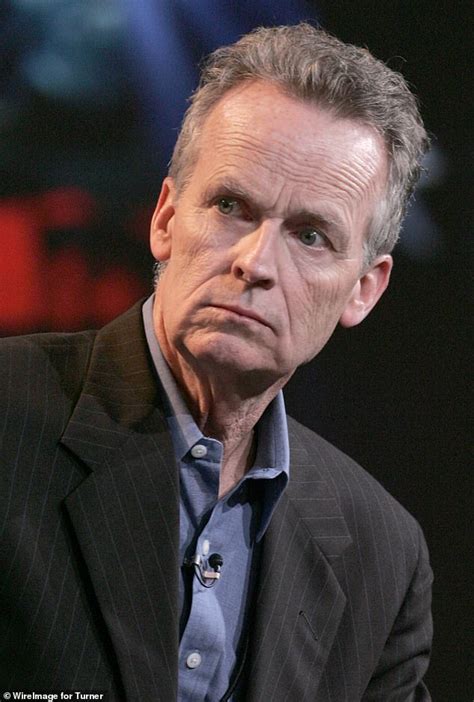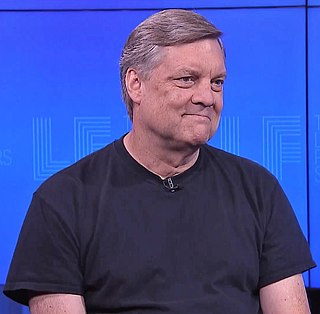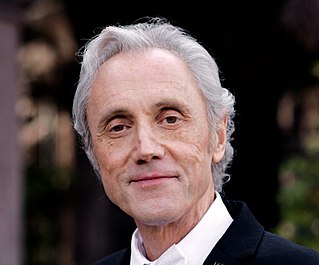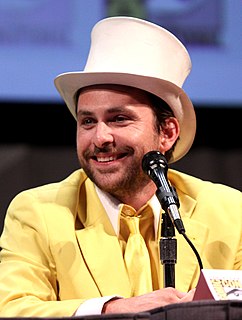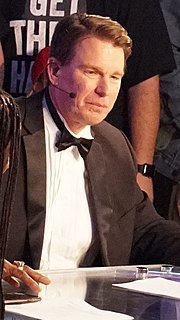Top 1200 Moral Failure Quotes & Sayings - Page 16
Explore popular Moral Failure quotes.
Last updated on December 18, 2024.
But what of the voice and judgment of conscience? The difficulty is that we have a conscience behind our conscience, an intellectual one behind the moral. ... We can see quite well that our opinions of what is noble and good, our moral valuations, are powerful levers where action is concerned; but we must begin by refining these opinions and independently creating for ourselves new tables of values.
The American elite is almost beyond redemption. . . . Moral relativism has set in so deeply that the gilded classes have become incapable of discerning right from wrong. Everything can be explained away, especially by journalists. Life is one great moral mush--sophistry washed down with Chardonnay. The ordinary citizens, thank goodness, still adhere to absolutes.... It is they who have saved the republic from creeping degradation while their 'betters' were derelict.
Suppose . . . burglars had made entry into this . . . [library]. Picture them seated here on this floor, pouring the light of their dark-lanterns over some books they found, and thus absorbing moral truths and getting moral uplift. The whole course of their lives would have been changed. As it was, they kept straight on in their immoral way and were sent to jail. For all I know, they may next be sent to Congress.
But no one can blink at the fact that in this land, and in other lands across the world, there is an epidemic affecting the lives of millions of youth. It is a sickness that comes of a loss of values, of an abandonment of moral absolutes. The virus which has infected them comes of leaderless families, leaderless schools, leaderless communities. It comes of an attitude that says, "We will not teach moral values. We will leave the determination of such to the individual."
While theoretically a person may block God out, logically there will be a breakdown because ultimately all enunciation implies a moral doctrine of some kind. And if that moral doctrine is not absolute then the definer himself becomes undefined. That's what we are living with - an undefined definer giving us definitions for our course, and we are being trapped in the quicksand of the absence of objective truth.
If you want to be rich, never give up. People tend to give up. If you have persistence, you will come out ahead of most people. More importantly, you will learn. When you do something, you might fail. But that's not because you're a failure. It's because you have not learnt enough. Do it differently each time. One day, you will do it right. Failure is your friend.
Now we cannot...discover our failure to keep God's law except by trying our very hardest (and then failing). Unless we really try, whatever we say there will always be at the back of our minds the idea that if we try harder next time we shall succeed in being completely good. Thus, in one sense, the road back to God is a road of moral effort, of trying harder and harder. But in another sense it is not trying that is ever going tobring us home. All this trying leads up to the vital moment at which you turn to God and say, "You must do this. I can't.
Moral certainty is always a sign of cultural inferiority. The more uncivilized the man, the surer he is that he knows precisely what is right and what is wrong. All human progress, even in morals, has been the work of men who have doubted the current moral values, not of men who have whooped them up and tried to enforce them. The truly civilized man is always skeptical and tolerant.
I find that goal setting, when done this way, leads to goal achieving. The chronic failure to achieve goals lowers self-esteem. Show me a failure to achieve a goal, and usually I can show you the violation of one or more of the above criteria. Imposed goals, vague goals, and unrealistic goals tend to produce only partial successes and outright failures.
...any belief in supernatural creators, rulers, or influencers of natural or human process introduces an irreparable split into the universe, and prevents us from grasping its real unity. Any belief in Absolutes, whether the absolute validity of moral commandments, of authority of revelation, of inner certitudes, or of divine inspiration, erects a formidable barrier against progress and the responsibility of improvement, moral, rational, and religious.
When I was a child, my father used to encourage my brother and me to fail. At the dinner table, instead of asking about the best part of our day, he would ask us what we failed at that week. If we didn't have something to tell him, he would be disappointed. When we shared whatever failure we'd endured, he'd high-five us and say, 'Way to go!' The gift my father gave us by doing this was redefining what failure truly meant.
For an act to be moral the intention must be based on compassion, not duty. We do something because we want to do it, because we feel we have to do it, not because we ought to do it. And even if our efforts fail - or we never even get to implement them - we are still moral because our motivation was based on compassion.
The novel as a form is usually seen to be moral if its readers consider freedom, individuality, democracy, privacy, social connection, tolerance and hope to be morally good, but it is not considered moral if the highest values of a society are adherence to rules and traditional mores, the maintenance of hierarchical relationships, and absolute ideas of right and wrong. Any society based on the latter will find novels inherently immoral and subversive.
My views on charity are very simple. I do not consider it a major virtue and, above all, I do not consider it a moral duty. There is nothing wrong in helping other people, if and when they are worthy of the help and you can afford to help them. I regard charity as a marginal issue. What I am fighting is the idea that charity is a moral duty and a primary virtue.
No genuine equality, no real freedom, no true manhood or womanhood can exist on any foundation save that of pecuniary independence. As a right over a man's subsistence is a power over his moral being, so a right over a woman's subsistence enslaves her will, degrades her pride and vitiates her whole moral nature.
. . . What role does historiography play in the way a society and culture "remembers" past events? Does the historian have a moral or civic responsibility to this project of memory that ought to influence the way he or she engages in historical practice? Should moral concerns influence the historian's choice of subject matter, of issues to discuss, of evidence to use?
Morality is neither rational nor absolute nor natural. World has known many moral systems, each of which advances claims universality; all moral systems are therefore particular, serving a specific purpose for their propagators or creators, and enforcing a certain regime that disciplines human beings for social life by narrowing our perspectives and limiting our horizons.
It seems fair to say that while the moral standards of the nineteenth century persisted almost unchanged into the twentieth, moral practices changed sharply, and that though the standards of the nineteenth century persisted the institutions that had sustained them and the sanctions that had enforced them lost influence and authority.
Hence the sterile, uninspiring futility of a great many theoretical discussions of ethics, and the resentment which many people feel towards such discussions: moral principles remain in their minds as floating abstractions, offering them a goal they cannot grasp and demanding that they reshape their souls in its image, thus leaving them with a burden of undefinable moral guilt.
If we empower ourselves with responsibility over our actions, responsibility over our destinies and responsibility for directing and maintaining and creating our own ethical and moral frameworks, which is the most important thing really isn’t it because perhaps the greatest insult to humanism is this idea that mankind needs a god in order to have a moral framework.
It would appear... that moral phenomena, when observed on a great scale, are found to resemble physical phenomena; and we thus arrive, in inquiries of this kind, at the fundamental principle, that the greater the number of individuals observed, the more do individual peculiarities, whether physical or moral, become effaced, and leave in a prominent point of view the general facts, by virtue of which society exists and is preserved.
The problems of a retired schoolteacher in Duluth are OUR problems. That the future of the child in Buffalo is OUR future. That the struggle of a disabled man in Boston to survive and live decently is OUR struggle. That The hunger of a woman in Little Rock is OUR hunger. That the failure anywhere to provide what reasonably we might to avoid pain is OUR failure.
When we are young the idea of death or failure is intolerable to us; even the possibility of ridicule we cannot bear. But we have also an unconquerable faith in our own stars, and in the impossibility of anything venturing to go against us. As we grow old we slowly come to believe that everything will turn out badly for us, and that failure is in the nature of things, but then we do not much mind what happens to us one way or the other. In this way a balance is obtained.
Rather take that moral sense and apply it to the particulars of a job that is going to test those ethical and moral precepts differently than if you're a professor, or a business person, or a dad. And if I were not comfortable with the judicious use of our military to protect the American people, than I shouldn't have run for president. And having said that, I do think that the wisdom of a [Martin Luther] King or a [Mahatma] Gandhi can inform my decisions.
Failure is just part of the process, and it's not just okay; it's better than okay. God doesn't want failure to shut us down. God didn't make it a three-strikes-and-you're-out sort of thing. It's more about how God helps us dust ourselves off so we can swing for the fences again. And all of this without keeping a meticulous record of our screw-ups.
The doctrine that might makes right has covered the earth with misery. While it crushes the weak, it also destroys the strong. Every deceit, every cruelty, every wrong, reaches back sooner or later and crushes its author. Justice is moral health, bringing happiness, wrong is moral disease, bringing mortal death.
In ancient times, any man rising up above the common people tried to shape his life according to his principles; it is no longer like than now; it is (because) for the ancients, moral was a principle of inner life, whereas in our days, most of the time one is content to adhere to an official moral, that we recognize in theory, but that one does not care to put into practice.
... these great improvements of modern times are blessings or curses on us, just in the same ratio as the mental, moral, and religious rule over the animal; or the animal propensities of our nature predominate over the intellectual and moral. The spider elaborates poison from the same flower, in which the bee finds materials out of which she manufactures honey.
I believe our task is to develop a moral and aesthetic imagination deep enough and wide enough to encompass the contradictions of our time and history, the tremendous loss and tragedy as well as greatness and nobility, an imagination capable of recognizing that where there is light there is shadow, that out of hubris and fall can come moral regeneration, out of suffering and death, resurrection and rebirth.
Natural good is' so intimately connected with moral good, and natural evil with moral evil, that I am as certain as if I heard a voice from heaven proclaim it, that God is on the side of virtue. He has learnt much, and has not lived in vain, who has practically discovered that most strict and necessary connection, that does and will ever exist between vice and misery, and virtue and happiness.
Wherever moral ambition exists, there right exists. And moral ambition itself must be presumed present in subconsciousness, even when the conscious self seems to reject it, so long as society has resources for bringing it into action; in much the same way that the life-saver presumes life to exist in the drowned man until he has exhausted his resources for recovering respiration.
Finally, there is more genuine joy in climbing the hill of success, even though sweat may be spent and toes may be stubbed, than in aimlessly sliding down the path to failure. If a straight, honorable path has been chosen, the gaining of the summit yields lasting satisfaction. The morass of failure, if through laziness, indifference or other avoidable fault, yields nothing but ignominy and sorrow for self and family and friends.
How can we encourage other human beings to extend their moral sympathies beyond a narrow locus? How can we learn to become mere human beings, shorn of any more compelling national, ethnic, or religious identity? We can be reasonable. It is in the very nature of reason to fuse cognitive and moral horizons. Reason is nothing less than the guardian of love.
One reason for the decline in moral values is that the world has invented a new, constantly changing and undependable standard of moral conduct referred to as "situational ethics." Now, individuals define good and evil as being adjustable according to each situation; this is in direct contrast to the proclaimed God-given absolute standard: "Thou shalt not!"-as in "Thou shalt not steal".
There is seemingly no biological benefit to acting with conscience; if there were, only moral individuals would survive and procreate. Sadly, we know that's not true. The benefit of conscience is that you won't suffer guilt (private) or shame (public), and that by your own self-imposed definition, you are a moral human, a special kind of animal who takes unique pride in elevating him/herself above the termites.
There is, however, a moral basis for the vegetarian diet for which the indeterminate value of an animal's life takes on irrelevance. And that moral basis is a concern for the environment, a value as absolute as the value we all place on human life, since humanity will not survive for long on a poisoned planet. To be an environmentalist who happens to eat meat is like being a philanthropist who doesn't happen to give to charity.
I don't have the slightest interest in gold. I like understanding what works and what doesn't in human systems. To me that's not optional; that's a moral obligation. If you're capable of understanding the world, you have a moral obligation to become rational. And I don't see how you become rational hoarding gold. Even if it works, you're a jerk.
People talk about the idea of special relationships, that is, the morality only really binds people who stand in some kind of contractual relationship with each other but in fact if you take that seriously as a criteria of when we have a moral relationship then it's hard to see why we would have moral obligations to strangers for example or people who live across the sea from us but yet, every decent person believes that we do.
You have to fail, man, but you cannot allow failure to stop you from doing what you must do. Failing is just as good as succeeding in a lot of ways. It's how you react to it all. You can react to success the wrong way and be a total failure. Or you can react to losing with your whole heart, learn from it, and be a huge success. In stand-up, I've learned to know when I'm burning it up or when I'm being so-so. That's experience. I learn every single time I'm on a stage.
Belief isn't simply a thing for fair times and bright days...What is belief - what is faith - if you don't continue in it after failure?...Anyone can believe in someone, or something that always succeeds...But failure...ah, now, that is hard to believe in, certainly and truly. Difficult enough to have value. Sometimes we just have to wait long enough...then we find out why exactly it was that we kept believing...There's always another secret.
It doesn't matter how far you might rise. At some point you are bound to stumble because if you’re constantly doing what we do, raising the bar. If you're constantly pushing yourself higher, higher the law of averages not to mention the Myth of Icarus predicts that you will at some point fall. And when you do I want you to know this, remember this: there is no such thing as failure. Failure is just life trying to move us in another direction.
Both Marx and Nietzsche understood that moral outrage is the last resort of the powerless. That is why Marx refused to issue moral condemnations of capitalism, preferring instead to lay out, calmly and ruthlessly, his reasons for believing that it is destined to be replaced by socialism. And that is why Nietzsche mocks Christianity for portraying its crucified Saviour as bait wriggling on a hook to catch unsuspecting souls.
Many people have written about the economic meaning of globalization; in One World Peter Singer explains its moral meaning. His position is carefully developed, his tone is moderate, but his conclusions are radical and profound. No political theorist or moral philosopher, no public official or political activist, can afford to ignore his arguments.
The moral absolutes rest upon God's character. The moral commands He has given to men are an expression of His character. Men as created in His image are to live by choice on the basis of what God is. The standards of morality are determined by what conforms to His character, while those things which do not conform are immoral.
As Muslims, we must have an active presence based on ethical and moral consistency. We need to be very vocal, to inform people, to demonstrate when necessary. We need to write so that the people understand that what they are getting from the media and politicians is biased and not accurate. And this is true especially when it comes to some communities within the U.S. or with respect to the Middle East and Africa. This is what I am expecting from a new generation of leaders: Meet these expectations of moral consistency.
There are some things fundamentally off about the stance of the book. And maybe that's okay; maybe every book is flawed, and great books, as flawed as they might be, articulate a moral argument that the reader then carries forward. The critique to this model is, of course, to ask: Should a book be ever so perfect that you come out of it with complete moral agreement that can be sustained?

















